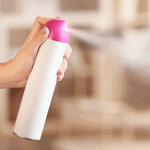
Air Quality and Pregnancy: What You Need to Know
What to expect when you’re expecting… from your HVAC unit? It’s always important to have good air quality in your home, but even more so during pregnancy, as pregnant women are sensitive to air pollution. Breathing in polluted air can negatively affect your child’s health, both during pregnancy and after birth.
You have plenty of things to worry about during pregnancy – the air quality in your home shouldn’t be one of them! Here are a few simple steps to improve the air quality in your home.
Check for Issues
First, check your home for common pollutants that can negatively impact air quality. Investigate bathrooms, windows and trash cans for the tell-tale fuzzy spores that indicate mold is growing.
If you do find mold in your home, don’t panic! If it’s a small patch of mold, ask another household member to carefully clean the area with soap and hot water. Bleach is also an option, but be sure to ventilate the area afterward with an open window or fan. If there’s a decent amount of mold, you might want to hire a professional service to clean it more thoroughly.
Increase Ventilation
When it comes to less harmful pollutants, such as dust and dirt, simple preventative measures that increase air flow can make all the difference. Everyday items you use around the house, such as scented candles, contain fragrance that can linger in the air.
Opening the windows is an easy way to let some fresh air circulate through your home and clear out any dust, fragrance or other pollution. Just be sure you aren’t letting in excessive pollen or other outdoor allergens. Studies have shown that seasonal allergy symptoms are sometimes worse during pregnancy.
Bathroom and kitchen fans are also valuable tools to keep clean air running through your home. Ventilation fans are helpful for clearing away excess moisture, which can contribute to the growth of mold.
Avoid Heavy Fumes
You might be excited to decorate the nursery, but pregnancy isn’t the best time for DIY projects. Paint, particularly oil and water-based paint, emits heavy fumes that can impact air quality. It’s important for your health, and the health of your baby, to stay away from these heavy fumes during pregnancy.
Try also to stay out of rooms that have recently been painted. If that’s not possible, make sure the room has proper ventilation, such as an open window.
Heavy cleaning products can emit similarly harmful fumes, so it’s best to stay away from those, too. Aerosol or spray-based cleaners are particularly bad when it comes to spreading particles in the air. If you’re unsure whether a product is safe to use during pregnancy, check the label! The American Pregnancy Organization recommends avoiding cleaners with glycol ethers, phthalates, alcohol, ammonia, chlorine and a number of other ingredients.
Keep Up with Maintenance
One of the best ways to maintain good air quality in your home during pregnancy is by keeping your HVAC unit in tip-top shape. Your HVAC doesn’t just cool and heat the air in your home – it purifies the air and removes excess humidity. To keep your air filtered and free of pollutants, check your air filter once every month. Every three months (or more often, if needed), replace the filter.
It’s a good idea to get your HVAC unit professionally inspected once a year to keep it running properly. An annual tune-up is the best way to make sure your unit is running safely and efficiently, giving you the best-possible air quality. As an added bonus, regular maintenance can prevent the headache of emergency repairs – extra stress you don’t need during pregnancy.
At Barineau Heating & Air, we’re committed to keeping you and your family safe and comfortable with the best possible air quality in your home. Our Total Comfort Service Program is designed to make annual HVAC maintenance hassle-free, so you can worry about more important things. Call (850) 580-4029 or click here to make an appointment today.




